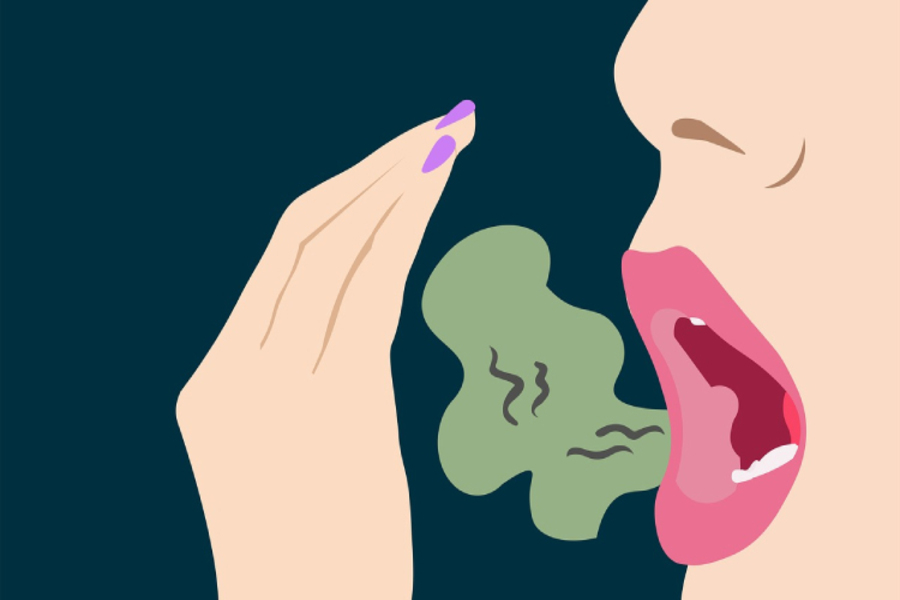
What’s more embarrassing and socially undesirable than a toothy grin covered in spinach salad remnants? Yes, you do have horrible breath. There was a foul stench coming from the mouth. Of course, it’s not a medical emergency, but 25 and 30 percent of people worldwide struggle with this problem.
The causes of foul breath are not mysterious: among the most prevalent are coated tongues, dental caries, gum disease, and poor oral hygiene. Numerous bacteria inhabit our mouths, and some of them, such as those that produce sulfurous odors, can be found on the tongue, below the gum line, or in gaps between the gums and teeth caused by gum disease.
Malnutrition, uncontrolled diabetes, and dry mouth may also contribute. Additionally, intestinal issues, including lactose intolerance, heartburn, ulcers, and infections like sinusitis and sore throat, can cause bad breath. Intermittent lousy breath is another possibility. Breathing problems can be momentarily exacerbated by foods and beverages such as coffee, alcohol, onions, and garlic. It also affects smokers. Regardless of the underlying cause, treatment addresses the illness and possibly attempts a few simple fixes.
Importance of brushing your teeth
Professionals advise brushing your teeth twice daily. To thoroughly clean all surfaces of the teeth, one needs to have an appropriate brushing technique. The gum line and the backs of your teeth, constantly in contact with your tongue, should not be disregarded. You may prevent bad breath by brushing your teeth and cleaning your tongue.
- Drink plenty of water
Natural microorganisms in your mouth prevent teeth from eroding. However, it also has a lot of harmful germs in it that cause tartar and plaque to build up, which stinks bad. The best technique to get rid of that bacteria with an offensive scent is to drink water. Some people recommend eight glasses of water every day. Others suggest that you consume half your body weight in ounces. Whichever rule you decide to go by, make sure you consistently drink a lot of water.
- Brush your teeth
Food becomes stuck in your gum lines and between your teeth. It stays in your mouth for hours if you wait until bedtime to brush it away. Depending on what was eaten, this could result in highly terrible breath. After eating, you should rinse your mouth even if you don’t brush. A basic go-to mouthwash is a solution of salt and warm water. Furthermore, bad breath may be a result of dry mouth. Additionally, dry mouth might contribute to poor breath. Saliva is necessary to wipe away microorganisms and, by extension, odor. Saliva production can be induced by rinsing with water to eliminate microorganisms.
- Use tongue scraper
Even after brushing your teeth, certain food particles may remain in your mouth. Food particles, germs, and dead cells accumulate on the tongue, giving it a whitish look. Additionally, it may aggravate poor breath.
Tongue debris can be easily and quickly removed by using a tongue scraper. For permanent effects, incorporate it into your evening dental hygiene routine.
- Avoid using mouthwash with alcohol
Mouthwashes with alcohol can promote dry mouth syndrome, resulting in tooth damage and gum recession. Use mouthwashes free of alcohol or a natural treatment like salt water or water with baking soda.
